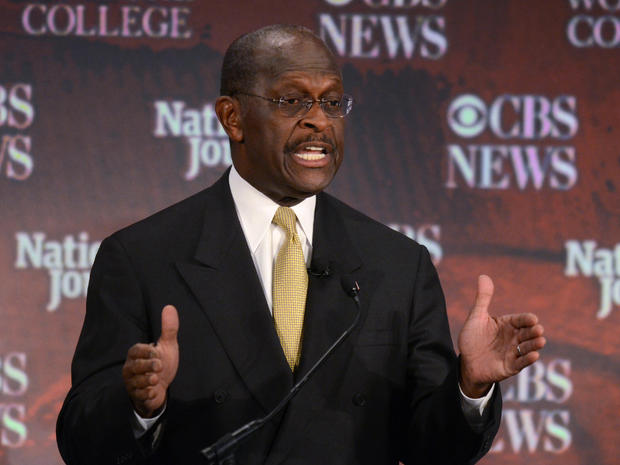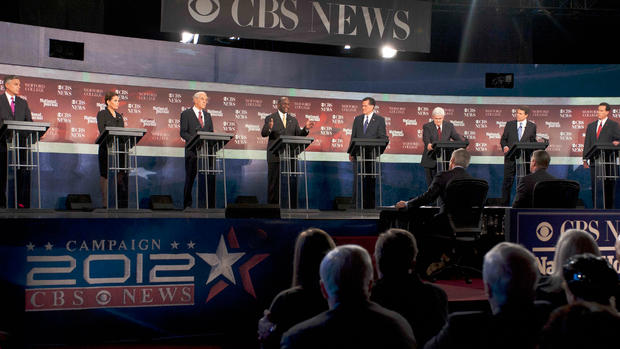Analysis: Cain held his own, but answers didn't show depth
Not referencing his 9-9-9 signature tax plan once in the foreign policy debate, Herman Cain may have had the most to lose in tonight's CBS News/National Journal Commander-in-Chief Debate tonight in South Carolina. But for the most part he held his own, did not commit any major gaffes, though he often gave answers that lacked a depth of knowledge or a conviction of policy.
Though standing on stage with the former ambassador to China, the Atlanta businessman who sits atop the most recent CBS News poll of Republican voters, got the first question out the gate, how to handle the growing nuclear threat from Iran.
Cain said that having an American policy of energy independence would put pressure on Iran by changing world oil prices.
"The only way you can stop them is through economic means," he said.
When co-host Major Garrett of National Journal asked Cain if he would support using the military to prevent Iran from building a nuclear weapon, he said no. But then said the U.S. should move some of its Aegis class warships into the region.
"We have the biggest fleet of those warships in the world, and we could use them strategically in the event that they were able to fire a ballistic missile," he said.
Debate winners and losers
Fact checking the debate
Later Cain was asked if he thought Pakistan was a friend of a foe.
"We don't know," he said to laughter. "There isn't a clear answer as to whether or not Pakistan is a friend or foe. That relationship must be reevaluated," he said.
Often though, Cain responded to pointed policy questions by saying he would rely on his own experts and military leaders for the answers.
"The approach to making a critical decision, first make sure that you surround yourself with the right people. And I feel that I'll be able to make that assessment when we put together the cabinet and all of the people from the military, et cetera," he said.
"But ultimately it's up to the commander-in-chief to make that decision," he added.
Later, he was asked about use of enhanced interrogation techniques against terrorist suspects, he answered again saying he'd rely on military leaders.
When asked specifically if waterboarding was torture, Cain said it wasn't and that he would employ it as part of U.S. policy
"I don't see it as torture. I see it as an enhanced interrogation technique," he said.
Going into the debate, many eyes were on Cain because of not only the recent allegations of sexual harassment against him, but also because foreign policy is one of his weaker subjects as his business, non-politician resume, doesn't provide him with any experience in the field.
Some reactions were not overly strong. "Wobbly night for Cain. Every answer one inch deep at best," wrote veteran Republican consultant Mike Murphy in a tweet. Former Bush Administration Press Secretary Ari Fleischer put it this way on Twitter: "Cain not so good 2nite."
Transcript of the debate
Full video
Full coverage: The CBS News/National Journal debate


